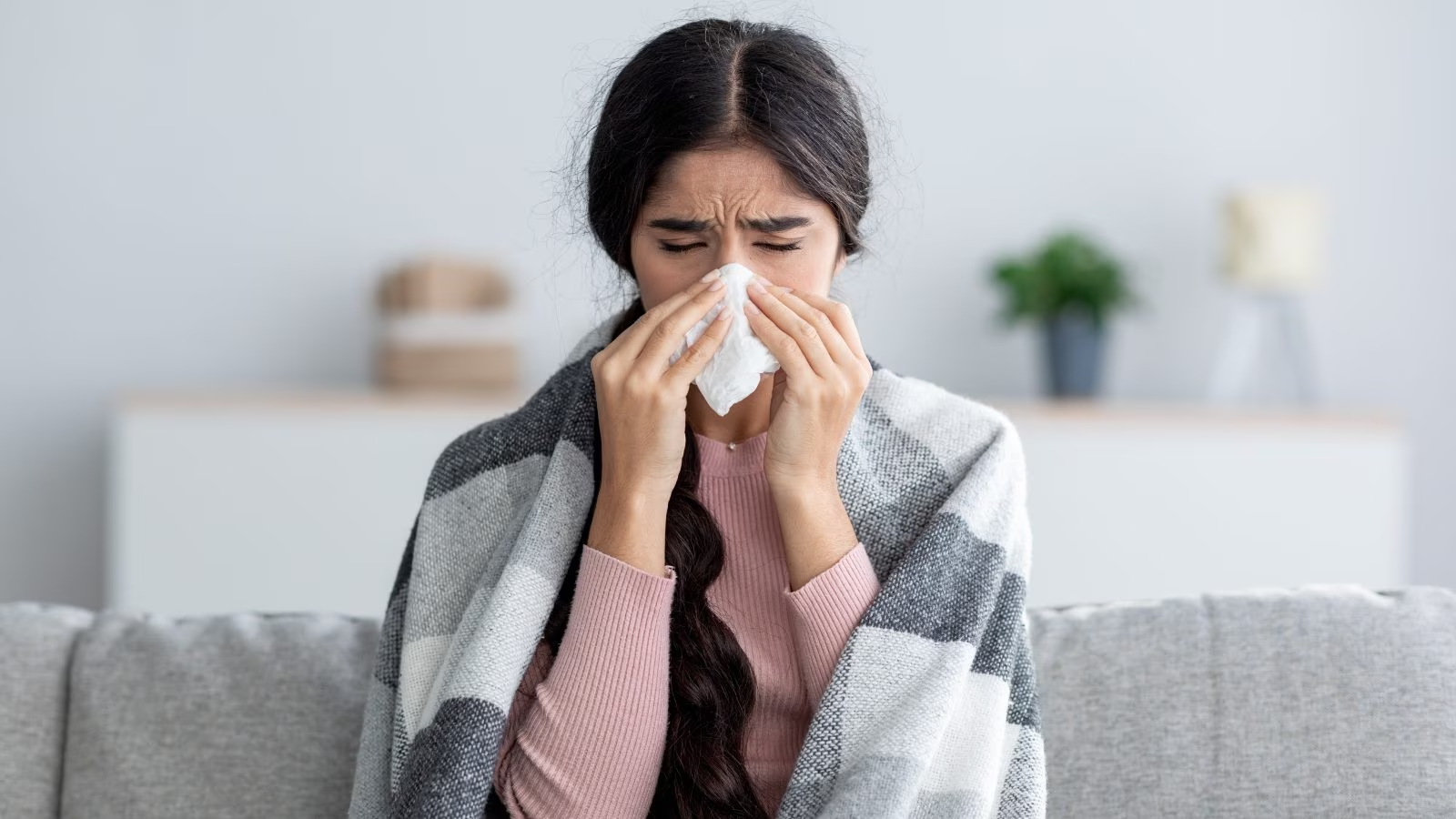As the scorching summer sun gradually surrenders to the approaching monsoon, a unique set of health challenges emerges in India. This period, spanning from late May to early July, witnesses a shift in weather patterns, creating a breeding ground for specific viruses and ailments. Understanding these pre-monsoon health concerns empowers individuals to take preventive measures and stay healthy throughout the transitional phase.
The Culprit: A Shifting Climate:
The pre-monsoon period is marked by several climatic changes:
-
Rising Humidity: As the air becomes more laden with moisture, the environment becomes ideal for the proliferation of viruses and bacteria.
-
Sudden Temperature Fluctuations: Erratic dips and spikes in temperature can weaken the immune system, making individuals more susceptible to infections.
-
Dust Storms: Pre-monsoon winds often carry dust and allergens, triggering respiratory problems in sensitive individuals.
Common Culprits: Viruses on the Rise
Several viruses become particularly active during the pre-monsoon season:
-
Dengue Fever: This mosquito-borne viral infection can cause high fever, severe headaches, muscle and joint pain, and a characteristic skin rash.
-
Chikungunya: Transmitted by Aedes mosquitoes, this viral disease often manifests with high fever, severe joint pain, and swelling.
-
Common Cold and Flu: The rise in humidity creates a favorable environment for the viruses responsible for the common cold and influenza, leading to an increase in these illnesses.
-
Rotavirus: This highly contagious virus causes severe diarrhea and dehydration, particularly affecting young children.
Beyond Viruses: Other Pre-Monsoon Ailments
The pre-monsoon period also sees a rise in other health concerns:
-
Waterborne Diseases: Stagnant water bodies that accumulate before the monsoon rains can become breeding grounds for bacteria causing illnesses like typhoid, cholera, and gastroenteritis.
-
Foodborne Diseases: Rising temperatures and improper food storage practices during this period can lead to an increase in food poisoning caused by bacteria like E. coli and Salmonella.
-
Skin Infections: Increased humidity can aggravate fungal skin infections like athlete’s foot and ringworm.
Preventive Measures: A Shield Against Pre-Monsoon Woes
Fortunately, numerous steps can be taken to safeguard oneself against pre-monsoon health concerns:
-
Mosquito Control: Eliminate stagnant water sources around homes to prevent mosquito breeding. Utilize mosquito nets and insect repellents containing DEET for additional protection.
-
Maintain Hygiene: Frequent handwashing with soap and water is crucial to prevent the spread of viruses and bacteria. Practice safe food handling techniques and ensure proper storage of food items.
-
Strengthen Immunity: Consume a balanced diet rich in fruits, vegetables, and whole grains to bolster the immune system’s ability to fight off infections. Consider incorporating vitamin supplements after consulting a doctor.
-
Hydration is Key: Drink plenty of fluids throughout the day to stay hydrated, especially during hot and humid weather.
-
Early Diagnosis and Treatment: Seek immediate medical attention if you experience any symptoms of pre-monsoon illnesses. Early diagnosis and treatment can significantly improve recovery outcomes.
The Importance of Early Childhood Immunization
Vaccinating children according to the recommended schedule is crucial to protect them against vaccine-preventable diseases like rotavirus and measles, which can be particularly worrisome during this period.
Location-Specific Concerns
India’s vast geographical expanse leads to variations in pre-monsoon health threats across different regions:
-
Coastal Areas: These areas are more prone to mosquito-borne diseases like dengue and chikungunya due to the presence of stagnant water bodies and breeding grounds for mosquitoes.
-
Hill Stations: Sudden temperature drops in hill stations during pre-monsoon can trigger respiratory problems, especially for those with pre-existing conditions like asthma.
Individuals should stay informed about specific health risks prevalent in their locality and take appropriate precautionary measures.
Conclusion:
The pre-monsoon period in India necessitates a shift in healthcare awareness and practices. By understanding the unique challenges posed by this time of year and diligently implementing preventive measures, individuals can safeguard themselves and their families from a range of potential health concerns. Embracing a proactive approach towards health ensures a smooth transition into the monsoon season and paves the way for a healthy remainder of the year.






